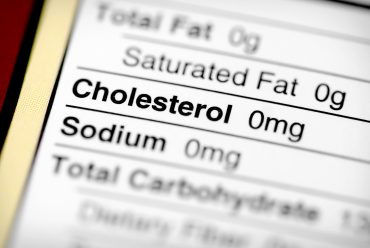Probiotics-Making them work for you
Making probiotics work for you!
by Craig Vardi
A massive area of health that has been, and continues to be researched, are probiotics. Probiotics refer to the live beneficial bacteria and yeasts that should ideally inhabit our gut and promote good health. We have over a kilogram of bacteria in our gut – that’s more organisms than we have cells!
With modern lifestyles (including taking antibiotics and some drugs), and specifically the intake of processed foods and unbalanced diets, we disrupt the balance of these friendly organisms in our gut. This is called dysbiosis, and can result in a number of conditions which impact on our health. Conditions like constipation, irritable bowel syndrome (IBS), mental health conditions e.g. depression and inflammation can result or be exacerbated when dysbiosis takes place.
Supplementing with a probiotic is one way, albeit a temporary way, to promote good healthy gut fauna and health. Eating a healthy diet, which includes taking in plenty good bacteria and yeast, is a more thorough and long-lasting way to promote gut harmony. The inclusion of fermented foods, with plenty of friendly bacteria, is highly beneficial way to improve our health.
Most people have heard of some of the health benefits of eating yoghurt each day. Besides protein, calcium and other micronutrients, yoghurt has good friendly bacteria. But the problem with most live yoghurts, is that they only have a few strains of good bacteria. Granted, these bacteria are good for us and we benefit from taking them in on a daily basis, but sometimes more.. is better!
One food product that contains many healthy strains of bacteria and yeast, is Kefir (pronounced Ku- feer). By taking in Kefir on a regular basis, we ensure more than the few yoghurt strains can be taken in and benefit us. However, just like genetics amongst people differs, so too do the probiotic needs. A person that battles with IBS, and a person that has depression, will differ in the strains of bacteria they ideally need to ingest.
In an attempt to create a personalised Kefir supplement, I undertook a small project which is described below in step form.
Step 1:
Upon self-reflection, areas that I wished to address in terms of my health, I researched in the literature, including the web site below. By knowing exactly what one wants to address, a person can determine which organisms are beneficial in terms of the current available scientific research.
Step 2:
I then sourced an available, suitable Kefir product or starter culture, and found out which organisms were present in that product, by writing to the manufacturer. For organisms to be effective, not only do the genus and specie name ideally need to be known, but also the strain. Not all strains give us the benefits we desire. Sometimes we can’t find out the strain, but we do our best!
Step 3:
Using the Kefir product, I introduced the live bacteria and yeast contained within it, into some fresh, pasteurised milk. I let this stand for 24-48 hours, and this allowed me to be confident that I could make my own Kefir.
Step 4:
Comparing the organisms present in the Kefir product with the organisms I had researched and come up with, I sourced available probiotic supplements that addressed the differences, and bought them.
Step 5:
To the Kefir starter culture, I added a dose of the supplements containing the additional beneficial organisms. By using this mixture in the future to make my own Kefir, I have tried to meet my current needs in terms of what I would like to do with my health.
Personalised medicine and treatment is the key to good health. Making homemade Kefir, that has been optimised for our health needs, is one way to promote good health. Give it a try!










